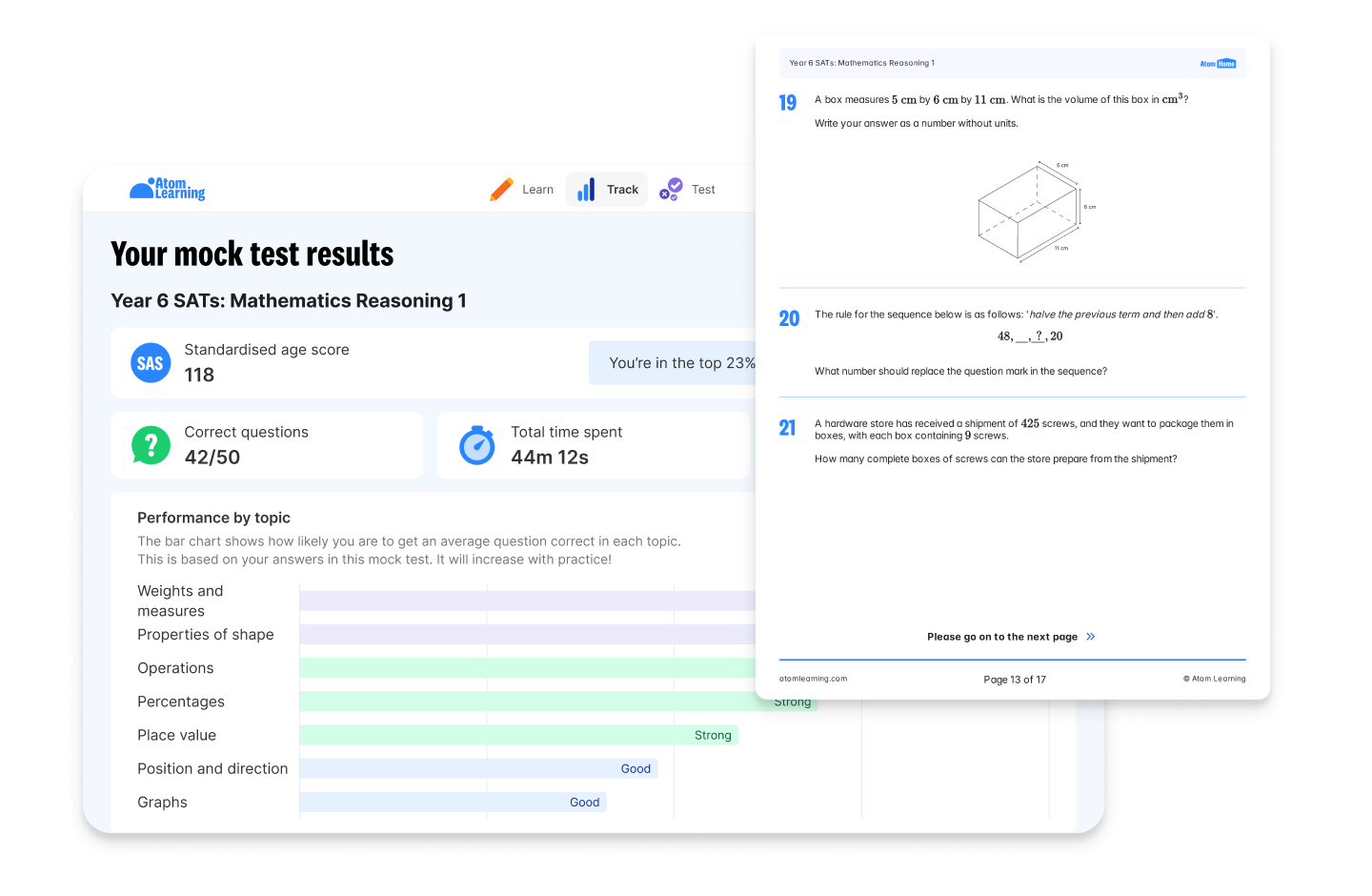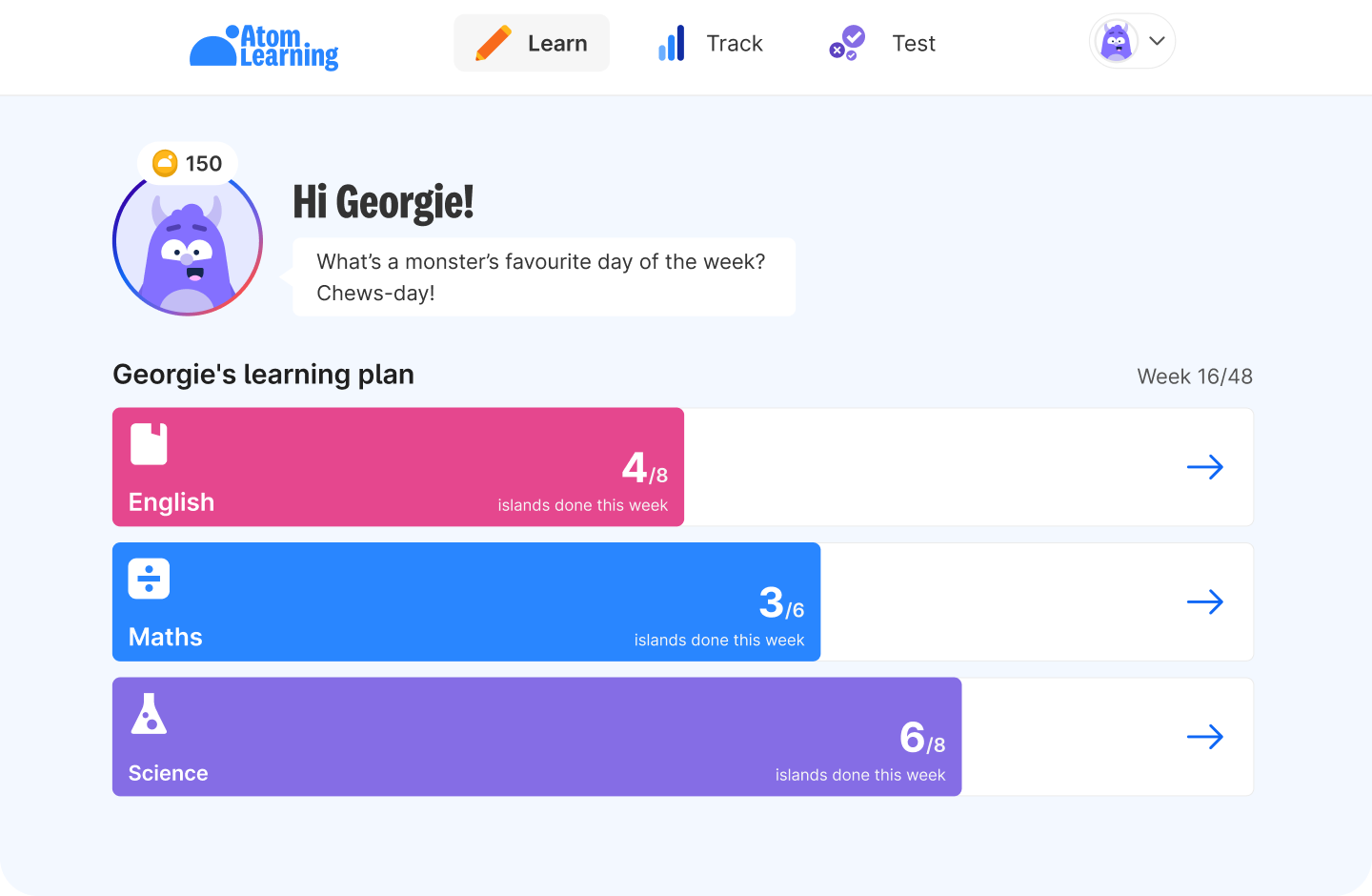How to handle unexpected 11 plus results

With most grammar schools releasing their 11 plus results in October, it can be a fraught time for families. Depending on your area, less than 40% of children will achieve a pass mark. For example, in Buckinghamshire, about 37% will get the grades, whereas in Kent it’s only 25%. So, if you and your child are in this position, you're not alone.
If your child didn't pass the 11 plus, you may be wondering what to do next. Read on for practical steps you can take to support your child and keep their academic confidence on track.
How to support your child through results day
With all the expectations built up around grammar school and seeing other families celebrate, the disappointment of losing out on a grammar school place can be hard on parents. But as hard as it can be for us, it's even harder for children to navigate. As parents, our top priority is to make sure our children know they are loved and their 11 plus results do not define them.
Results day and its aftermath should be all about helping our children to truly believe and internalise the fact that they’re so much more than the number on their results paper.
We should be empathetic without being negative about the process, school or others. Acknowledge that things haven’t gone as we’d both hoped, but normalise it. Reassure your child that this is just part of finding the right school for them; it's not their fault or anybody else's.
Here are some top tips to help you support your child:
1. Give them space and support
Giving your child time and space to be themselves over the next week can help them to process disappointing news. A quiet family weekend is a good plan, building in time to do something fun together and get outdoors if the weather cooperates.
Rather than trying to forget about the exam results completely though, check in with your child and ask how they’re feeling. Remind your child that if they feel upset, you’re there for them to talk to. You may also want to discuss how they'd like to share the news with their friends and classmates – some of whom will have got the results they hoped for, while others may be in the same position.
Once your child feels more like themselves, it’s time to address plan B.
2. Decide on plan B
Reassure them that it’s OK and that there’s a plan B. As parents, it’s important that we do not show any of our own disappointment. It’s a good opportunity for us to model focusing on the positives of unexpected situations.
Here, have a heart-to-heart conversation about which schools you will apply to. Discuss with your child what school they would prefer to go to, where do you both think they will thrive? Then, get the application in early – once this is done, your child can simply enjoy being in Year 6.
Talk about all the positives of attending their new secondary school, including the friends they’ll have, the activities they’ll be a part of and other plus points that their first-choice grammar school didn’t have. Using the tips and activities here throughout Year 6 will help your child to frame their upcoming transition as a positive experience and feel excited about their new school.
3. Re-establish a home learning routine
Once the dust has settled, take time to ensure your child's home learning routine gets back up and running in the next few weeks. If their academic confidence has been shaken by their exam results, remembering that learning can be fun and seeing themselves make progress can do wonders.
A bitesize, consistent routine will help your child feel proud of their academic progress. There are online learning platforms that will allow you to set up this type of routine at the touch of a button, and you and your child can see their progress at a glance and celebrate it together.
Top tips for re-framing your thinking
1. Set them up for stability and success
All the knowledge and skills your child developed while preparing for the 11 plus have not gone to waste. Taking time to consolidate this learning now will put them in a very strong position for starting Year 7.
Bear in mind that, even for those who met the qualifying score in the 11 plus, there is still a long wait to find out whether they have been offered a place at their desired school. Grammar schools will allocate places depending on their priority criteria and whether they are oversubscribed.
So even for children who got the score they had hoped for, there is no guarantee of a grammar school place. Parents will find out on national offer day on the 1st March. Losing out on an expected grammar school place at this point in the year can be more disruptive. The child is much closer to starting Year 7 and will have had longer to build up the idea of going to a specific school.
There are benefits to knowing now that you are not going to apply to grammar schools. Your child now has almost the entirety of Year 6 to prepare and build confidence for secondary school. Now is the time for your child to really thrive in Year 6, and approach Key Stage 2 SATs with confidence. This will set them in good stead to be streamed into top sets in secondary school.
2. Focus on long-term learning
Based on what we know about the science of learning, academic study should be all about long-term learning for its own sake. Doing well in exams and getting good grades is a byproduct of that, rather than the sole aim.
This is the difference between intrinsic and extrinsic motivation. If someone does something simply because they’ll get a reward (such as a place at a specific school), they’re far less likely to put in sustained effort or retain the benefits, compared to the person who sees the value of the task itself.
Whether your child gets their desired exam results or not, after celebrating the effort they put in, the conversation should return to the importance of continued study – learning for learning’s sake. The highest-performing children don’t stop learning as soon as the 11 plus is over. Learning over a long period, repeated practice and routine all build secure knowledge and good habits.
Our experience shows that children who perform the strongest in secondary school are those who engage in home learning little and often from Year 3 up to the end of Year 6. What’s more, those who do only 15 minutes of practice in the morning enjoy the same benefits as those who study for longer periods in the evening.
3. Remember the success stories
Among all the hype about grammar school places, what isn’t talked about so much are the success stories of the thousands of children each year who don’t get into grammar school and go on to thrive in their academic career and beyond.
Educationally and emotionally, there are benefits to being a bright student at a non-selective school, at the top of the cohort and streamed into a top set, compared to being in a middle or lower set at a grammar school.
A grammar school education does not automatically equal ‘better’. Many comprehensive schools and academies have excellent opportunities for development inside and outside the classroom, as well as the social benefits of coeducation that children often miss out on at single-sex grammar schools.
Although your desired grammar school may have seemed like the perfect fit for your child, it is possible that they wouldn't have been happy in that environment. A school that you hadn't considered before can now become a viable option, and your child may well be happier and more fulfilled there than they would ever have been at grammar school.
Make SATs preparation clear and manageable.

Worried about how ready your child is for Year 6 SATs? With so much content covered across Key Stage 2, it can be difficult to know where they’re secure and where they need to improve. Atom breaks preparation into simple, weekly steps, so they build confidence in every subject without feeling overwhelmed.
- Follow personalised weekly exam plans that focus on the exact skills assessed in English and maths SATs.
- Build exam technique with SATs practice papers that mirror real question formats and timing.
- Track progress with clear topic-level insights, so you can spot gaps early and support improvement long before assessment week.
Start your free trial and help your child feel ready, confident and prepared for SATs.



